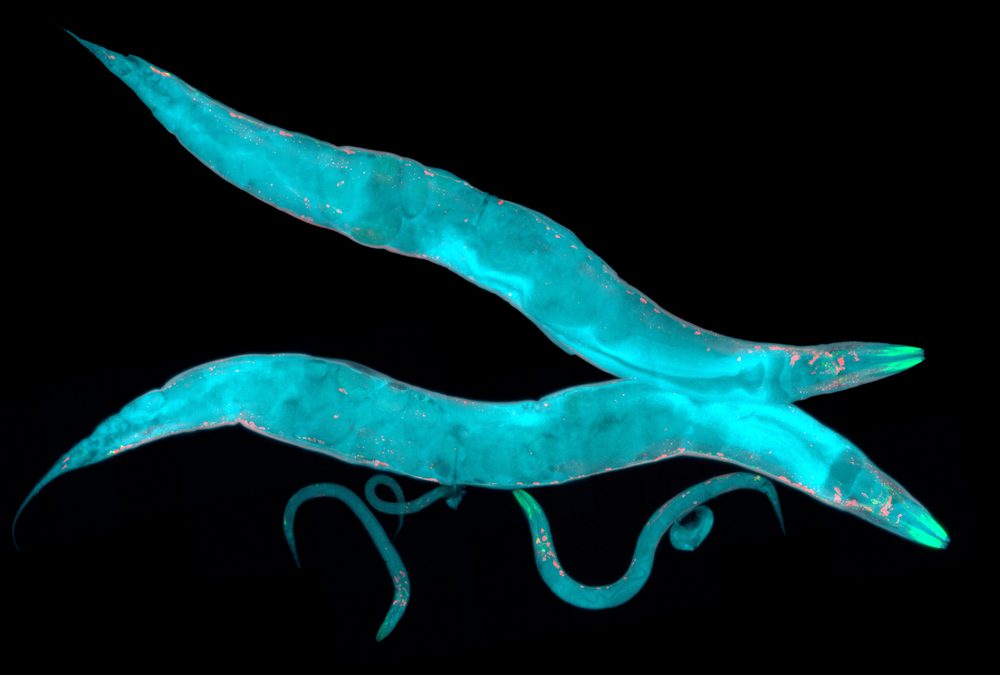Genes are the driver for all developmental functions. These strips of DNA code for everything required for biological life to function. The human genome totals over 20,000 protein-coding genes, and there are estimated to be over 5 million protein-coding genes across all life on earth. The first gene was sequenced in the early 1970’s, and since then researchers have been continuously marching onward to study genes in many different plants and animals.
Recently, biologists at UCLA were studying the development of C. elegans, cross-breeding the normal laboratory strain of the worm with a wild Hawaiian strain. In their analysis, they noticed that the wild strain was missing several genes compared to the lab strain. The noticeable genes that were missing included 2 genes named sup-35 and pha-1. Pha-1 was a particularly surprising omission from the genome, since it was thought to be crucial to the development of C. elegans’ digestive tract. Previous studies had shown that when pha-1 is disabled, the digestive tract develops deformed, leaving the worms unable to properly digest food, which leads to death.
The researchers were puzzled that the wild worms lacked genes that appeared to be so instrumental in development. When they looked closer, they discovered an insidious interaction; the sup-35 gene doses newly fertilized eggs with a toxin that impedes digestive tract development. The pha-1 gene acts as an antidote to this toxin, so if both genes are present the worm develops normally. Otherwise, the worm dies. This had never been observed in C. elegans before since most studies are done using a strain of the worm which all have the pha-1 and sup-35 genes. The true nature of the genes was only able to be observed this time because the researchers were introducing the wild strain that did not have those genes. While there is obviously no advantage to the survivability of the worm with this type of genetic behavior, it is very beneficial behavior for the survival of the genes themselves: it lets the genes spread quickly through the population by eliminating worms that don’t have a completed pair.
This genetic behavior, where genes proliferate at the expense of the animal, is referred to as a “selfish genetic element.” Most of the examples for selfish genes that scientists found in the past were in bacteria, so finding this behavior in C. elegans represents a rare case of the behavior existing in animals. Interestingly, this isn’t the first pair of selfish genes found in C. elegans. Previous research identified a gene that doses sperm with a toxin to kill embryos unless the antidote gene is present. Finding two examples of the phenomenon makes some scientists think that maybe this isn’t as rare of a situation as we previously thought.
Powers Scientific’s refrigerated incubators offer a flexible growth environment for studies involving C. elegans. While the worms can be maintained anywhere between 16°C and 25°C, C. elegans growth rate is temperature-dependent (they grow faster at warmer temperatures), so the storage temperature must be used as a variable when planning experiments. Our versatile chambers can be adapted to create environments requiring vibration resistance, complete darkness, intense lighting, or a combination of variables. The chambers have a 2-50°C temp range, easily capable of maintaining any temperature needed to maintain C. elegans stocks. The chambers also have options for lighting control (with solid doors and clock-controlled lights) or additive humidity generation, if desired.
For more information about our refrigerated incubators or to request a quote, visit our Contact Us page or call us at (800) 998-0500.

